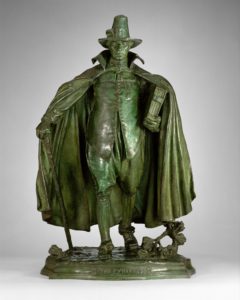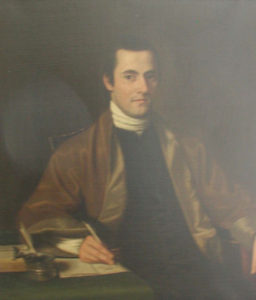Having trained as both a historian and a political theorist, my work focuses on the intersection of religion and political culture in early America. From this broad focus stem multiple intersecting questions about civic identity, the relationship between virtue and liberty, the role of non-governmental institutions in civic formation, as well as the sources, meaning and legacy of the American founding. I draw on my professional experience in public history to incorporate material culture into my work wherever possible in order to highlight ways in which ideas literally shape the world in which we live.
Citizens on a Hill engages in a critical analysis of the rhetorical use of aspirational founding principles by later generations in political communities for the assertion and defense of particular civic identities. The challenge of perpetuating public philosophical commitments through the development of personal character in New England was, I argue, critical to the development of a uniquely American approach to civic education. Although the project is historical in scope, it is intended to offer a reflection on the role of civic formation in navigating the enduring challenge of translating broad theoretical principles into workable political practice. As such, I conclude the book with an exploration of the resonances between the Puritan experience and the writings of Martin Luther King, Jr., Barack Obama, and others.
In this project, I seek to accentuate the theological aspects of the struggle to define and defend self-government during the founding and early national periods by examining the work and life of Congregational minister Joseph Buckminster (1751-1812). During his tenure as pastor of the First Church of Portsmouth, New Hampshire (1779-1812), Buckminster used his sermons as opportunities for civic formation. His ideal citizen was a morally free and equal agent, with not only a right to share in his own governance but also a responsibility for the regular oversight and care of his political community. Buckminster argued the character of citizens and the character of the government were intimately and necessarily connected in a republic, and developed a theologically-rigorous theory of what he called the “politics of integrity” as a way to address the ongoing negotiation between the competing political goods of rights and responsibilities.

